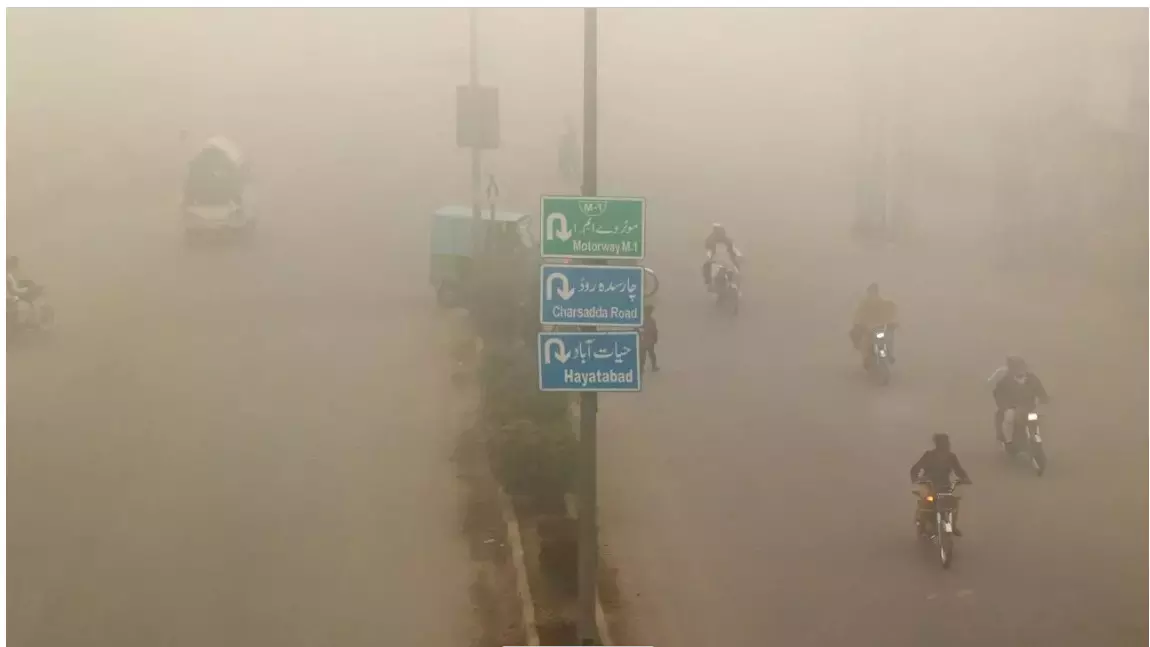Pakistan’s Punjab Declares Smog a ‘Health Crisis,’ Implements Artificial Rain to Combat Pollution
Dense smog caused by toxic pollutants continues to shroud cities in Punjab, with Lahore and Multan among the worst affected.
Pakistan’s Punjab Declares Smog a ‘Health Crisis,’ Implements Artificial Rain to Combat Pollution

Pakistan’s Punjab government declared smog a “health crisis” on Friday and deployed artificial rain technology to reduce hazardous pollution levels. This emergency response comes as millions across the province have been grappling with respiratory issues and other health complications over the past month.
This marks the second instance of the Punjab government utilizing artificial rain to combat pollution. Last December, the province successfully conducted a cloud-seeding experiment in Lahore.
In a statement, the Punjab government said the recent cloud seeding in Jhelum, Chakwal, Talagang, and Gujar Khan resulted in rainfall in Jhelum and Gujar Khan. Officials expressed optimism for similar success in Lahore. "Cloud seeding was carried out at 2 p.m. on Friday, and within hours, it rained in Jhelum and Gujar Khan. The artificial rainfall is expected to significantly reduce smog levels," the statement said.
Health Emergency Declared
Senior Minister Marriyum Aurangzeb announced a “health emergency” in Lahore and Multan, where the smog has been particularly severe. Over the past month, hospitals in Punjab have reported around two million cases of respiratory diseases, along with asthma, chest infections, conjunctivitis, and heart-related issues.
Aurangzeb stressed that official data likely underrepresents the full scale of the health crisis, as many individuals self-medicate or rely on informal healthcare providers. "The smog crisis has evolved into a full-blown health emergency, fueled by multiple factors such as transportation emissions, agricultural practices, energy consumption, and human behavior toward nature," she said.
The minister also highlighted the provincial government’s newly developed 10-year smog mitigation plan aimed at tackling the root causes of air pollution.
Collaborative Efforts
The artificial rain project was a collaborative initiative involving scientific experts, Army Aviation, PARCO, and the Punjab Environmental Protection Agency (EPA). Chief Minister Maryam Nawaz lauded the achievement, stating, "This success showcases the dedication, hard work, and expertise of our nation’s institutions. Punjab is proud of its scientific community."
Severe Pollution Persists
Punjab’s smog crisis has intensified in recent weeks, with Lahore and other cities experiencing some of the worst pollution levels in their history. Multan’s Air Quality Index (AQI) surpassed 2,000 on two occasions, setting alarming new records for air pollution.
In addition to artificial rain, the government has implemented measures such as school closures, restrictions on smoky vehicles, bans on barbecues, and limits on visits to recreational areas. Despite these efforts, the smog problem persists.
As Punjab struggles to address this growing environmental and health emergency, the artificial rain experiment offers a glimmer of hope for a region suffocated by toxic air.

